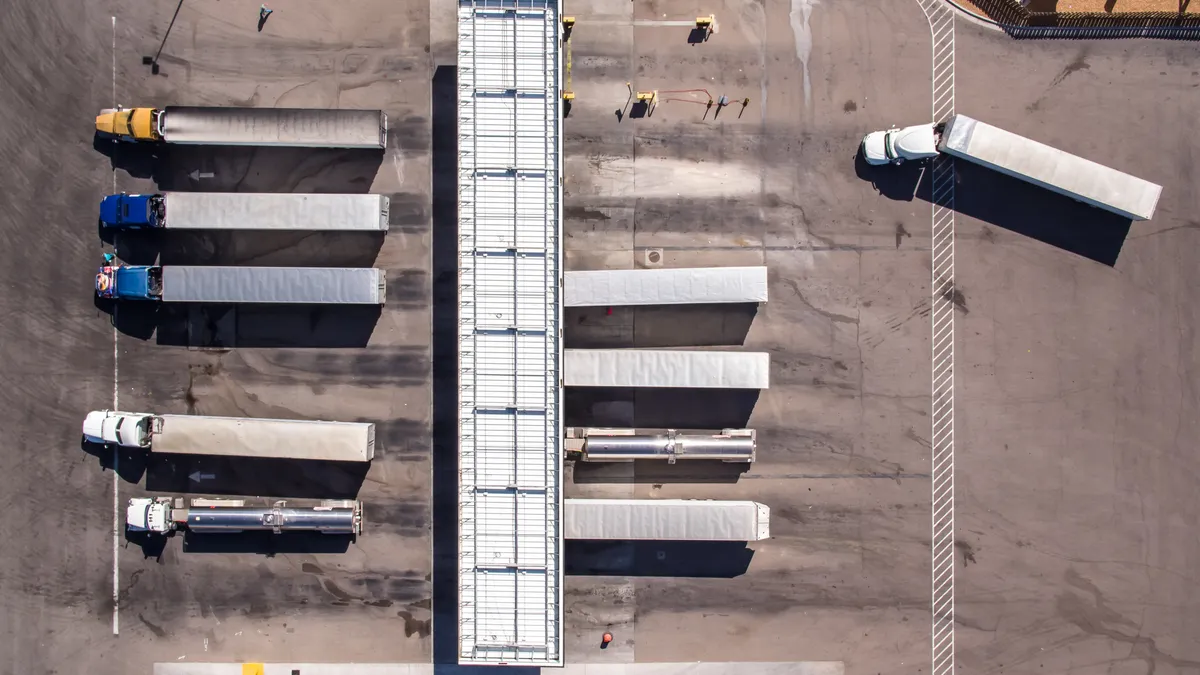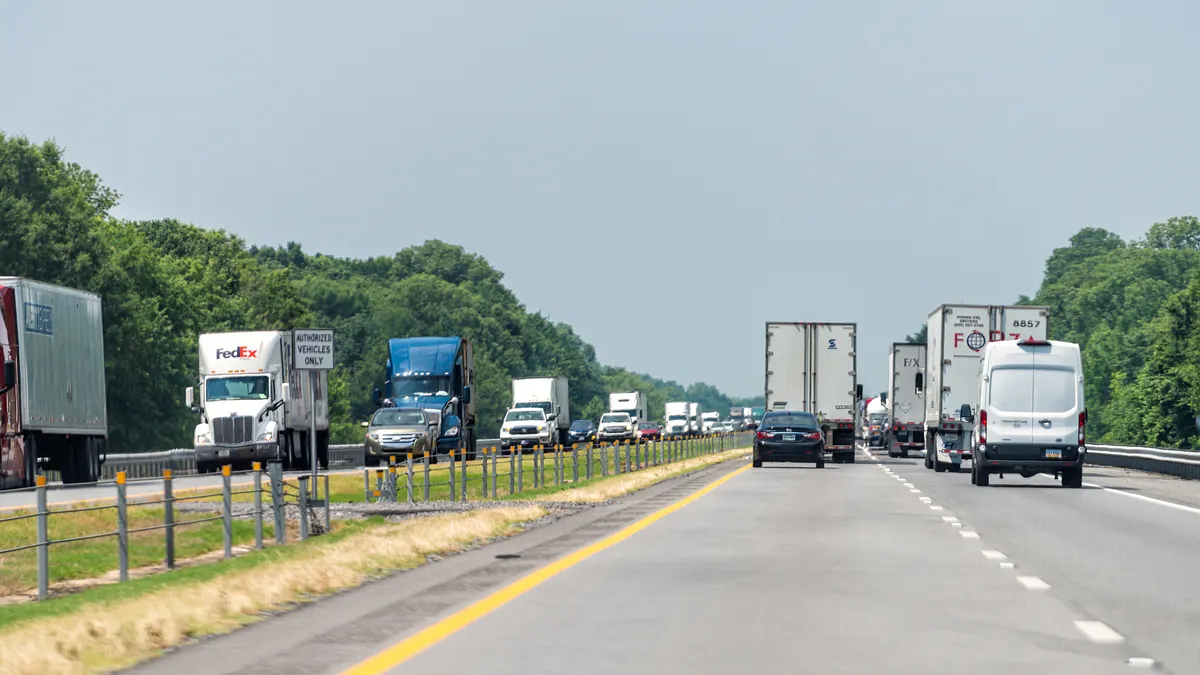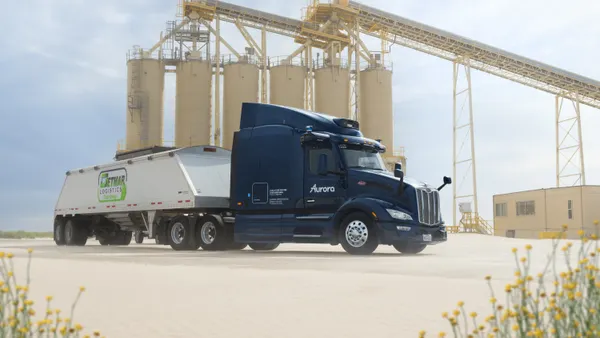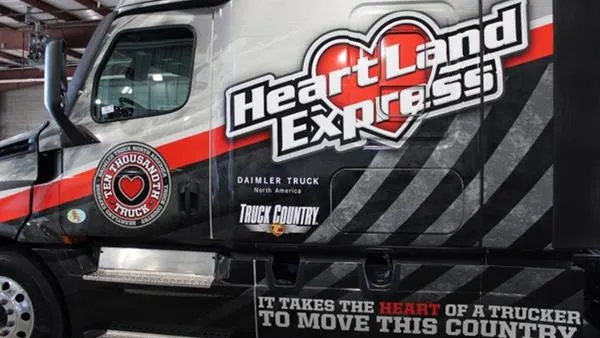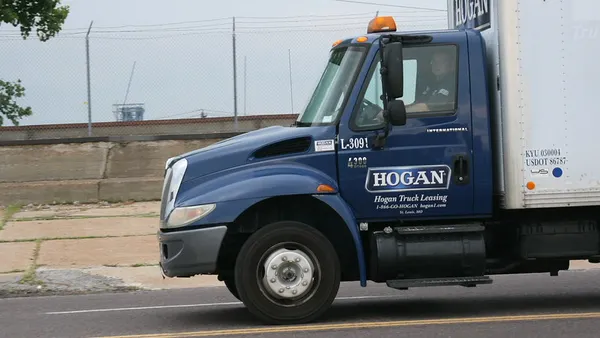UPDATE: March 24, 2020: Paccar is suspending truck and engine production at its factories worldwide, starting Tuesday until April 6, the company announced in a press release Monday. The OEM said it "will continue to provide aftermarket support to its customers who deliver essential infrastructure services."
UPDATE: March 23, 2020: Citing the COVID-19 outbreak, Navistar said it is suspending truck assembly production in Springfield, Ohio, for two weeks. Navistar withdrew financial and industry guidance for the fiscal year ending Oct. 31, 2020.
Dive Brief:
- OEMs and equipment manufacturers are temporarily halting production due to health concerns surrounding COVID-19. Volvo Group suspended manufacturing, with its subsidiary Mack Trucks stopping Thursday until March 27, and Volvo Trucks halting March 23 through March 27. Neither said it has reason to believe it has any cases of COVID-19 on premises, according to statements from the OEMs emailed to Transport Dive Thursday. "During this suspension, we will be exploring new ways of working and possible approaches to production that would allow for increased social distancing in the facility," Volvo Trucks and Mack said in an email.
- Daimler suspended production, commercial vehicles included, this week in Europe for a two-week period, according to a Tuesday press release. "Connected to this is an assessment of global supply chains, which currently cannot be maintained to their full extent. An extension of this measure will depend on further developments," the release said.
- Goodyear suspended tire production in North America, Latin America and Europe until at least April 3, citing a "sudden decline in market demand" and the fast-spreading pandemic, according to a press release emailed to Transport Dive. Bridgestone plans to temporarily shut down its manufacturing plants in North America and Latin America from March 21 until April 12, the company said Thursday. "The company has sufficient supply of product to meet customer demand and its distribution centers, plant warehouses and logistics teams will continue to fill orders, but is executing this temporary shutdown to align supply to the predicted demand in the market," according to Bridgestone's press release.
Dive Insight:
The manufacturing suspensions come when demand for new Class 8 trucks fell an unexpected 20% from January, to a total of 14,100 units, according to FTR, a transportation intelligence agency. It was the lowest order activity for the month of February since 2010 and down 18% year over year, FTR found.
The COVID-19 spread has further worsened Class 8 demand, but orders for trucks and trailers were slowing before the novel coronavirus arrived in North America.
"Fleets were already being very cautious in equipment purchases due to the flat freight market and slowing economy," FTR officials reported on the organization's website. And now manufacturers and government officials have to be vigilant about the possibility the COVID-19 virus could spread on factory floors and other workplaces.
The stoppage may have a positive side: It could allow demand and production to readjust. FTR reported Class 8 orders had been at replacement levels for four months. Eventually, orders have to rise above replacement levels, or fleets will fall short on new tractors, trailers and tires — a dangerous proposition as demand for freight such as food, medicine and cleaning products has gone up sharply, as consumers strip shelves and order more supplies online.


